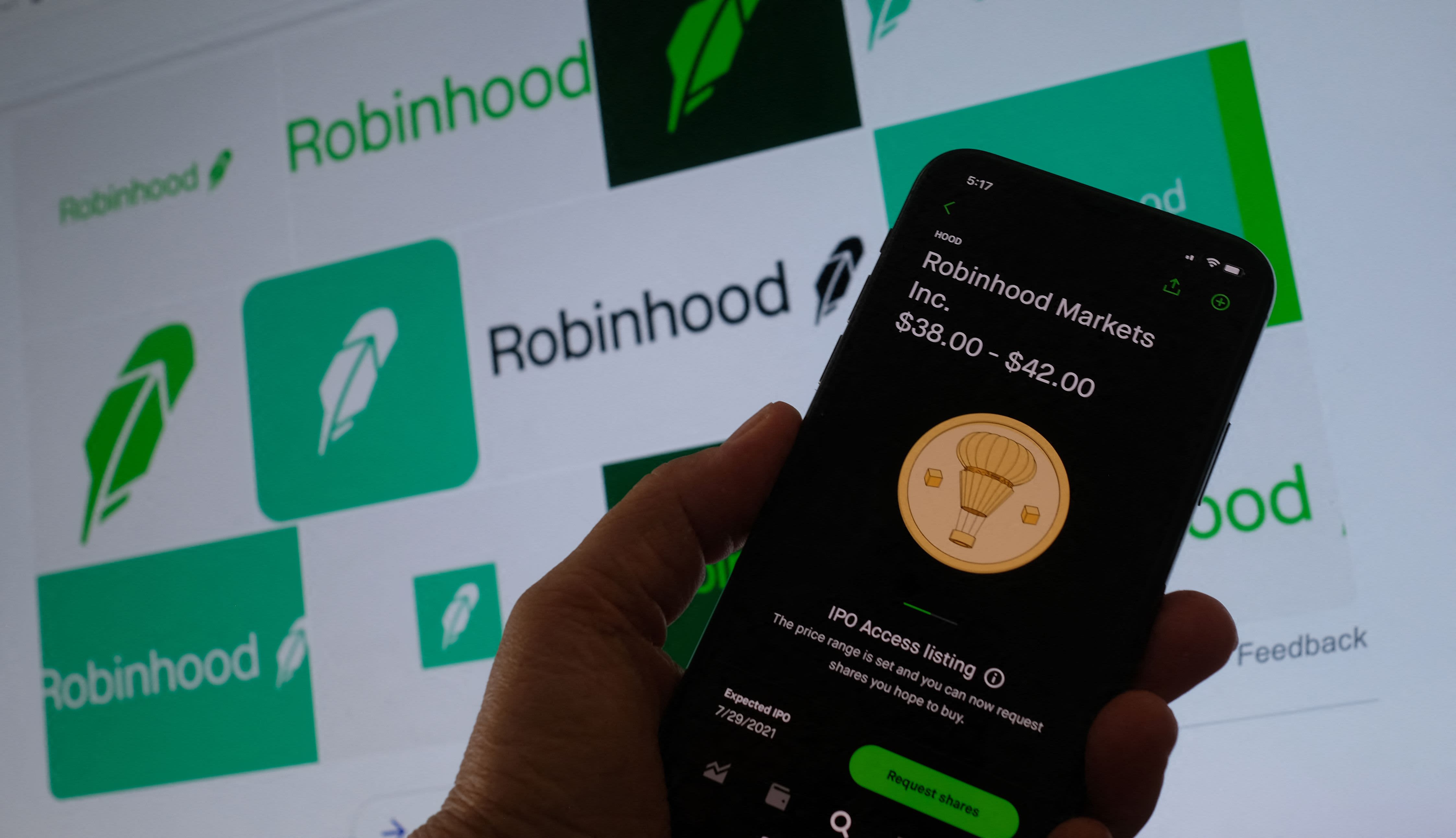
A person looking at a smartphone with the projected Robinhood price shares in Los Angeles, July 27, 2021.
Chris Delmas | AFP | Getty Images
Robinhood’s short run as a meme stock has crashed into Wall Street reality.
Shares of the stock-trading app dropped 8% on Thursday to $45.79 after the company reported earnings for the first time since its IPO in late July. Since climbing as high as $85 on Aug. 4, the stock has plummeted 46% to the lowest since its fourth day on the market.
Robinhood said second-quarter revenue more than doubled to $565 million, close to the high end of its forecast. But an outsized amount of its growth came from dogecoin, a cryptocurrency that was started as a joke.
Revenue from crypto transactions surged more than 45-fold from a year ago to $233 million, accounting for 52% of total transaction-related revenue, up from 17% in the first quarter and 4% in the fourth quarter of last year. More than 60% of its funded accounts traded crypto in the quarter.
Within Robinhood’s crypto business, which includes buying and selling of bitcoin, ethereum and several other digital currencies, 62% of revenue came from trading in dogecoin. That means dogecoin, which more than quadrupled in value in the second quarter, accounted for almost one-third of Robinhood’s total transaction revenue.
Robinhood since IPO
CNBC
Robinhood executives didn’t single out dogecoin on the earnings call on Thursday, but they refrained from offering a revenue forecast because there’s so much uncertainty in the business.
“We’ve experienced volatility from period to period that makes it difficult to accurately predict results in the short term,” Jason Warnick, Robinhood’s CFO, said on the call. “For Q3, we expect seasonal headwinds and lower trading activity across the industry to result in lower revenues and considerably fewer new funded accounts than we saw in Q2.”
Robinhood’s own stock briefly saw some of the same activity that’s made the app popular among young retail investors. Like shares of GameStop and AMC early in the year and dogecoin in April and May, Robinhood soared for no fundamental reason.
The rally didn’t last long. Robinhood gained 24% on Aug. 3 and 50% the following day and was up as much as 82%.
On Aug. 4, 175.8 million shares traded hands, 72% more than the amount traded on the company’s IPO day. The stock symbol HOOD was the top ticker on the Reddit WallStreetBets tracker Swaggy Stocks that day and was the top traded stock on Fidelity.
Robinhood has given up all of its gains from those two days and is now just 21% above its debut price on July 29.
Whatever Robinhood’s platform has become for traders, Warnick indicated to CNBC’s Kate Rooney on “Squawk Box” Thursday that the stock isn’t viewed like a GameStop or a dogecoin.
“It doesn’t resonate with me to call Robinhood a meme stock,” Warnick said.



